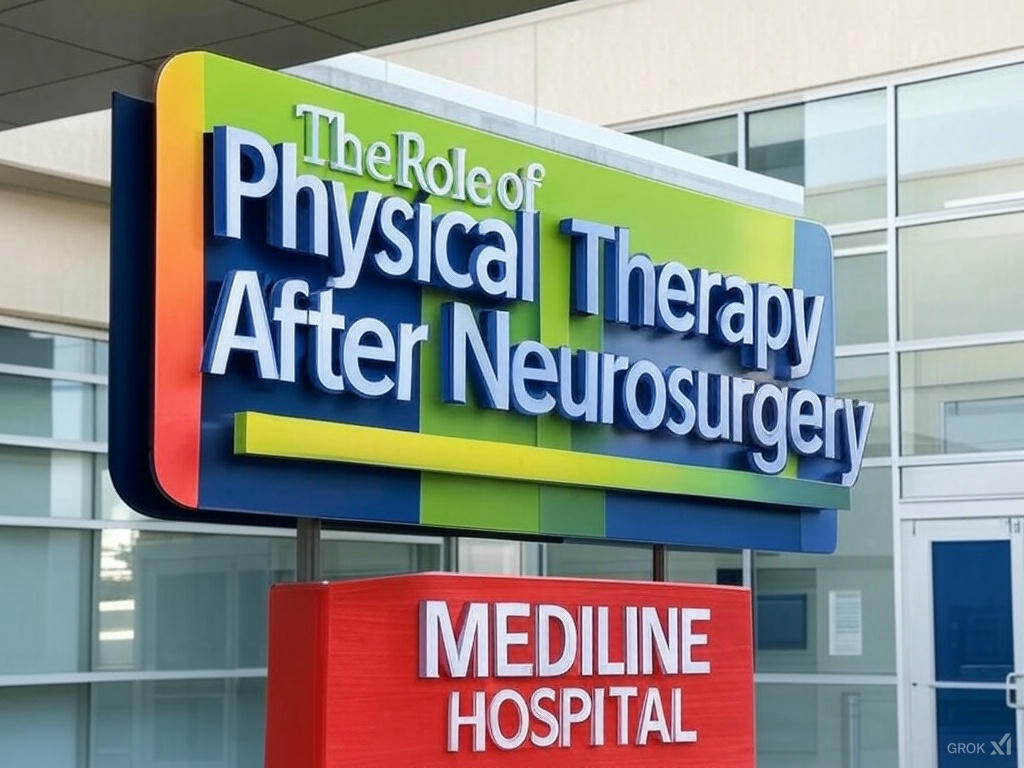
The Place of Physiotherapy in Neurosurgery Recovery: Reaining Strength and Independence
Introduction
Neurosurgery is a significant occurrence that necessitates a thorough recovery and rehabilitation process. Among the most important components of post-surgery recovery is physiotherapy, which has an instrumental role to play in returning strength, movement, and functionality as a whole. At Medline Hospital, we are committed to delivering the best neurosurgical care, and we place great value on physiotherapy in facilitating a smooth and successful recovery. This guide outlines how physiotherapy helps in healing, its advantages, and useful tips for patients and caregivers.
Understanding the Recovery Process
Postoperative Care
The first stage after neurosurgery is meticulous compliance with medical guidance and treatments prescribed.
Some of the important aspects are:
- Adherence to medical orders:
- Pain and soreness Management
- Complication monitoring*
The Critical Role of Physiotherapy in Recovery
Physiotherapy is a key component of post-neurosurgical rehabilitation, helping patients regain mobility, reduce pain, and improve their quality of life. At Medline Hospital, our physiotherapy team works closely with neurosurgeons to create individualized rehabilitation plans tailored to each patient’s needs.
Key Benefits of Physiotherapy
1. Restores Mobility and Strength**
– Muscles can be weakened by immobility following neurosurgery. Physiotherapy includes strengthening exercises to build up muscle power and coordination.
– Exercises like resistance, stretching, and balance training can restore normal patterns of movement.
2. Improves Circulation and Reduces Complications**
– Mobilization lowers the risk of blood clots, deep vein thrombosis (DVT), and lung complications.
– Gradual exercises and controlled movements stimulate improved blood flow and oxygenation to healing tissue.
3. Decreases Pain and Stiffness**
– Highly specialized techniques such as manual therapy, heat, and specific exercises reduce pain and stiffness.
Correction of posture and adjustment of ergonomics facilitate pain management in the long term.
4. Enhances Balance and Coordination**
– Most neurosurgical patients suffer from balance problems, which make them more susceptible to falling. Physiotherapists take patients through exercises aimed at restoring stability and avoiding injuries.
5. Promotes Increased Speed of Recovery and Self-Independence**
Physiotherapy makes patients self-independent by emphasizing functional movements needed in day-to-day activities.
Activities such as walking, stair climbing, and bathing become simpler through regular physiotherapy interventions.
Setting Goals and Monitoring Progress
Recovery from surgery is a slow process, and setting achievable goals can motivate the patient. Patients can collaborate with physiotherapists to set realistic milestones, like:
– Walking independently.
– Ascending stairs easily.
– Carrying out self-care activities autonomously.
– Maintaining full range of motion.
Cognitive and Emotional Support
Overcoming emotional changes:
Surgery-induced stress may trigger anxiety or depression. Any recovery strategy should incorporate mental well-being measures.
Participating in mental exercises**: Puzzles, reading, and memory games are some of the exercises that can improve cognitive function.
Obtaining support groups or guidance**: Meeting similar peers who have been through the same experience can be motivating and reassuring.
Specialized Neurosurgical and Rehabilitation Treatment at Medline Hospital
At Medline Hospital, we take a personal pledge to offer top-class neurosurgical and rehabilitation treatment. Our experienced physiotherapist team collaborates with neurosurgeons to design individualized rehabilitation plans. State-of-the-art infrastructure and a patient-focused model ensure maximum recovery rates for patients.
Patients and Caregivers Tips**
- Obey medical instructions: Adhere to medications prescribed, undergo physiotherapy, and adhere to follow-up schedules.
- Lead a healthy lifestyle: Follow a balanced diet, remain hydrated, and perform light exercise under the supervision of a doctor.
- Be regular with physiotherapy: Consistency is key to achieving the best results in strengthening, mobility, and functionality.
- Seek emotional support: Counseling with family, friends, or support groups can reduce the emotional burden of recovery.
- Be patient and persistent: Rehabilitation takes time. Have patience with the small victories and remain persistent in the process.
Conclusion
Physiotherapy is crucial in post-neurosurgical recovery, assisting the patients to gain strength, mobility, and independence. Comprehensive rehabilitation services at Medline Hospital include physiotherapy as a part of every patient’s recovery program. Patients, through a structured recovery process, can attain improved outcomes, less pain, and an overall quality of life improvement. This is general information and should not be used in place of professional medical advice. Always consult experienced Doctors at Medline Hospital, Karnal.
